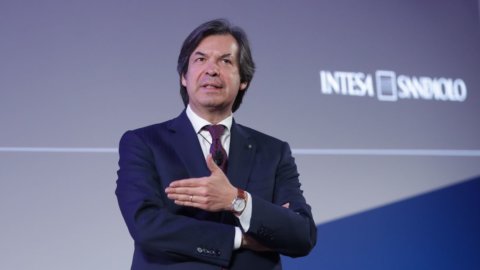There are those who bet on new forms of energy such as hydrogen, who on the platforms to develop sustainable portfolios, there are those who aim to eliminate the use of carbon and those who bet on electric mobility. More and more large groups and more and more managing directors see only one possible future, the sustainable and innovative one. And so the word sustainability, declined in various aspects, from environmental to governance and social aspects is slowly taking more and more space within corporate strategies. The first sector called directly into question is that of energy, considered by many to be one of the main environmental problems. In this sense, all the large Italian companies, Eni, Enel and Snam, have activated programs and protocols to quickly transform their respective businesses.
Francesco Starace, CEO and general manager of Enel has also recently become chairman of the Administrative Board of Sustainable Energy for All (SEforAll) and was among the signatories of the joint letter sent by some CEOs of the largest industrialists to the EU institutions (Council, Parliament and European Commission) to support the recovery of the economy and the Next Generation Eu plan, with a view to sustainable growth in the long term. In concrete terms, Enel expects to complete the decarbonisation process faster than expected by many and has already launched bonds linked to the United Nations objectives on the market. In parallel there is the commitment of Snam.
As part of its investment plan of 6,5 billion to 2023, the group led by Marco Alvera has allocated 1,4 billion to the “SnamTec” program (where Tec stands for “Tomorrow's energy company”) with initiatives to increase the sustainability of its activities and to boost new green businesses such as sustainable mobility, energy efficiency and biomethane. Snam, together with Diasorin, Iren and Sesa, was at the center of the "Italian Champions for sustainability" event organized at the beginning of December by Equita, during which Snam illustrated its now central role in the Italian national strategy for the transition energy towards alternative energy sources such as hydrogen. Often, however, talking about sustainability implies going hand in hand with innovation.
The Bolognese multiutility Hera, chaired by Tomaso Tommasi di Vignano and managed by Stefano Venier, is also very active in terms of innovation and sustainability, with particular attention to the circular economy.
General Bank, in theory belonging to a conservative sector such as the financial one, communicated at the end of the year a cross-section of its activities in the ESG field, showing how the segment of sustainable investment solutions is constantly growing: 200 ESG certified instruments within the range offered and total assets invested in solutions linked to sustainability which rose to 4,5 billion, or more than 13% of assets under management. In parallel, the institute led by Gian Maria Mossa is accelerating on fintech solutions. In particular, Banca Generali has created a digital platform that develops portfolios in line with the saver's sustainability objectives, choosing from products that invest in the 17 objectives of the UN 2030 Agenda such as food security, eradicating poverty, better education.
As a result, MSCI Esg Ratings upgraded the company from BB to BBB. Still on the innovation front, it should also be noted that the company led by Mossa has been actively working for years to establish an increasingly solid open banking model, as also confirmed by two recent transactions. On the one hand the launch of Bg Saxo with two cutting-edge platforms for operating in the world of trading, on the other the entry into the capital in the fintech Conio which the private bank announced a few days ago and which will allow it to broaden your digital offering to offer custody, trading and reporting services, focused on cryptocurrencies.
However, there are hardly fields that combine the two concepts of innovation and responsibility such as the world of electric cars, which are one of the frontiers in which Stellantis is ready to invest, i.e. the holding company born from the union of FCA and PSA, better known as Fiat and Peugeot. The president of the group will be John Elkann while the CEO will be Carlo Tavares and both have already announced that the new automobile giant will not slow down, but rather accelerate the development of platforms for the construction of electric cars (3 are planned, two from from PSA and one from FCA). A choice that not only leads Stellantis towards a sustainable future, but which according to a survey carried out by the Chamber of Commerce of Turin in collaboration with Anfia and the Ca' Foscari University of Venice could also give a boost to the Italian automotive sector.
The list of managers who focus on sustainability and social responsibility is fortunately not as short as it would have been 10 years ago. And indeed, there is someone who in some ways was a pioneer of these concepts, in the midst of his corporate reality and is Brunello Cucinelliwhich, moreover, despite a marked propensity for the ESG world, has achieved growing results over the years. He himself defines the business model as "sustainable growth and healthy profitability", a model which for the entrepreneur is a distinctive trait of the company.
The group has become like this a "case" in the fashion world, as he was among the first to limit the impact of one of the most potentially harmful sectors for the environment, from the massive use of chemical products, to the release of significant quantities of CO2, to the direct energy consumption of the machinery used in processing of raw materials, up to the intensive use of fibers such as wool and cotton.





